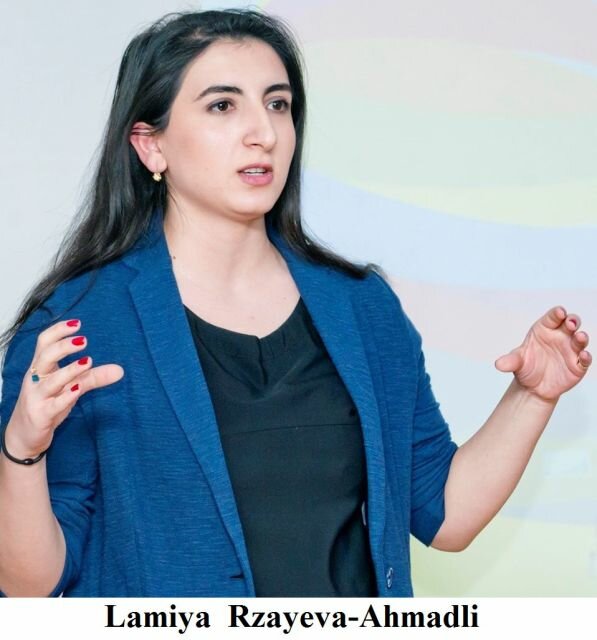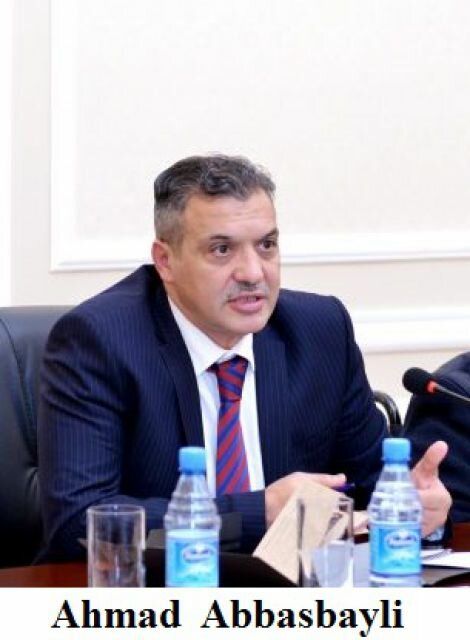Distance education against COVID-19
Advantages and disadvantages of distance education that was become necessary by the coronavirus pandemic
According to the United Nations Educational, Scientific and Cultural Organization (UNESCO) and World Bank, because of COVID-19 pandemic, around more than 1,5 billion students have been out of education. Even if many countries have applied online/distance education system in order to prevent the damage of the pandemic to the education, especially developing countries cannot use this kind of education.
The General Director of UNESCO Odre Azule has mentioned in his interview to “Le Journal du Dimanche” publication that, all around the world, 53 % of children and teenagers do not have a computer at home and 47 % do not have access to the Internet (this indicator is more than 80 % in Africa), that’s why it is impossible for them to apply online education.
How is the condition in Azerbaijan in the mentioned field? How was the reaction of responsible organizations on education, teachers, pupils, and students in the situation, created by the coronavirus pandemic in our country? How did distance education show its positive and negative sides?
We introduce you to the thoughts of different experts and specialists.
Agshin Mammadov, Philosophy Doctor in Philology, conducting research in the field of education, science and language policy:
“As coronavirus pandemic has spread, due to its consequences, in most of the countries, in education centers, online/distance education became the priority. In connection with the suspension of the educational process in general education institutions, the Ministry of Education also considered online training opportunities and provided several educational resources for online training. Currently, Ministry broadcasts “Dərs vaxt” (“Lesson time”) on “Culture” TV and “ARB Günəş” TV channels all over the country, as well as “Virtual school” (www.virtual.edu.az), an e-textbook where all textbooks are available online - http://www.e-derslik.edu.az/site/index.php implements projects. At the same time, the State Examination Center organized free trial exams on the website www.otk.az to prepare students for examinations without leaving home. In fact, the government has tried to ensure that everyone has access to online education at all levels of education”.
Lamiya Rzayeva-Ahamadli, Chairwoman of Azerbaijan Youth Union:
“In fact, discussions about the implementation of distance education in our country have become relevant in recent years. Special centers and departments for distance education have been established at a number of leading universities, and steps have been taken to build infrastructure in this area. But recent events have shown that this is not enough. Particularly, the abrupt suspension of classes at both universities and schools since early March has shown that not everyone is responding adequately to the new situation created by the pandemic. While some universities and schools were able to switch to online education immediately, some institutions were unable to act quickly.
As we work with pupils and youth across the country, our monitoring suggests that quality online education is not yet enough. Because a large number of pupils and students in the regions, do not have access to high-speed Internet, including low-income families that do not have the necessary gadgets such as computers, modern mobile phones, and tablets, notebooks. Shortly, with the exception of the capital and a number of major cities, there are serious problems with online learning in other areas. Furthermore, there were serious problems among teachers in suddenly transforming traditional teaching methods into modern distance learning methods. Many older teachers do not even have access to new technology, computers, and phone programs (Skype, WhatsApp, Zoom, etc.)”
Natig Veysalov, Director of “British Academy” Education Center:
“There is no doubt that in recent years, especially in the field of training for admission to various levels of higher education and education in the field of foreign languages, educational centers have played no less role than secondary schools and universities. Therefore, they had to assess the situation correctly during the pandemic.
Certainly, compared to universities and secondary schools, most learning centers were prepared to respond in a timely and effective manner to new challenges, both in terms of technology and in terms of teachers' use of modern methods. The listeners of such centers were able to switch to online teaching without any kind of problems.
Interestingly, in the past, as a center, we upload a lot of lessons to our site, but our listeners were almost not interested in it. Most of them did not want to join online classes. But now they have to attend online classes. Otherwise, they simply sat at home, waste time, and not be able to acquire new knowledge. Now those who join these classes can learn something from online classes and develop themselves.
However, in any case, the shortcomings of online methods in assessing students and pupils, especially appreciating knowledge, are obvious. Here more face-to-face meetings, traditional examinations help to prevent interference from outside and objectively assess the knowledge of students. Besides, there are still enough people who do not believe in the effectiveness of distance education.
That's why, during the pandemic, almost half of the youth who study at our center, gave up online classes, and stopped getting an education from us”.
Ahmad Abbasbayli, Expert on admission to public service in the State Examination Centre of Azerbaijan, member of the Public Council of Azerbaijan Medical University and Public Council of Azerbaijan State Pedagogical University:
“Undoubtedly, the reaction of educational institutions and relevant agencies to the force majeure situation was not equally effective, and this was understandable. But there is no doubt that these events will allow us to recover more quickly and swiftly in the same situations that may occur in the future. The State Examination Center is already introducing an online recruitment system, which used to be carried out by the traditional method. This summer many universities will conduct semester exams and state exams online and this can be considered a good background for the future. Along with the positive side, of course, in our country, as in all countries of the world, the shortcomings of using remote “tools” to overcome the impact of the pandemic on the educational process have become apparent, and this is understandable. The transition to online education has affected teachers, pupils, students, parents, teaching aids, technical base, as a complex. Most were neither morally, nor psychologically, nor technically ready for it. In my opinion, there is a lot to be done in this direction. The situation created by the pandemic has allowed us to conduct a real-time assessment of distance education and lay the groundwork for further work to improve its quality in the future”.
CNC/Azerbaijan
June 2020










